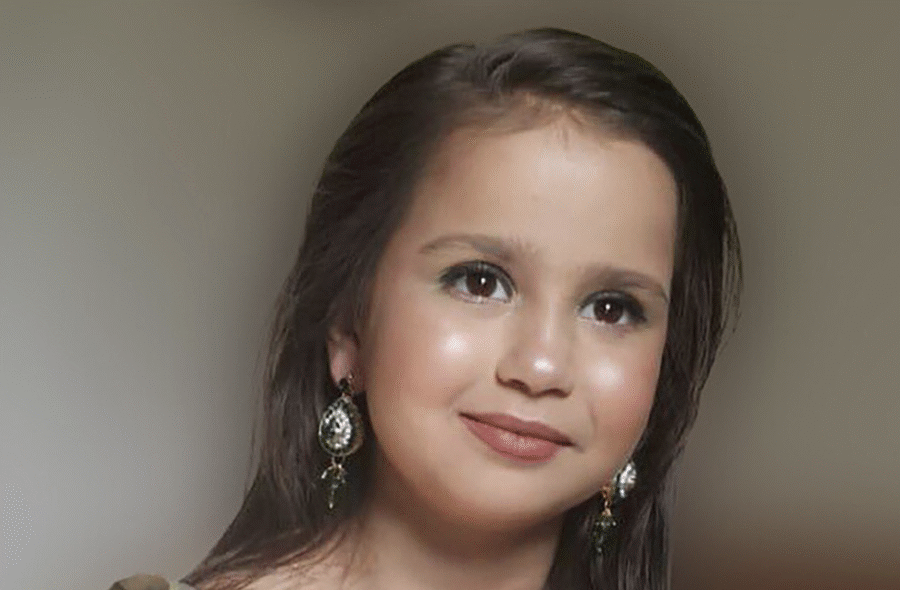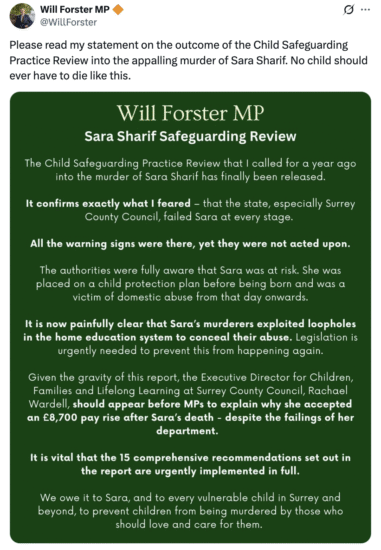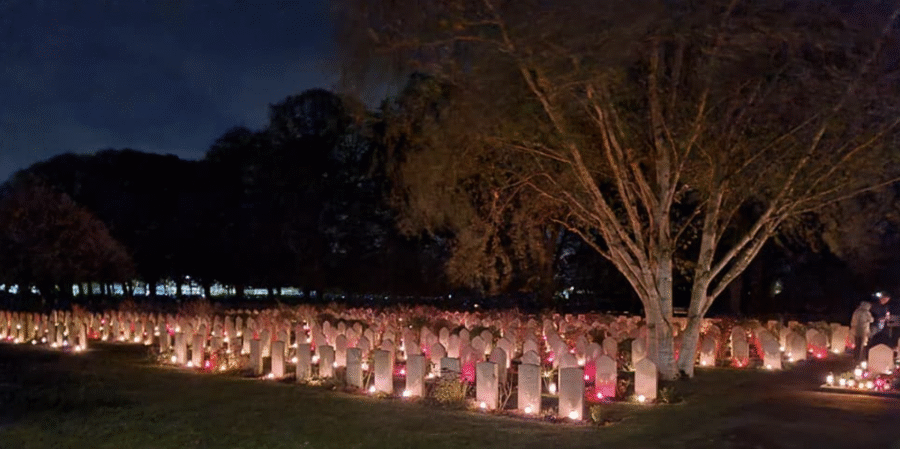A safeguarding review has concluded that neighbours failed to alert authorities to warning signs of abuse involving 10-year-old Sara Sharif, who was half Polish, because they feared being accused of racism, even as the child suffered escalating violence that ultimately led to her death.
Sara was found dead at her home in Woking, Surrey, on Aug 10, 2023. A post-mortem revealed that she had been beaten, burned, hooded and strangled in what prosecutors later described as a campaign of torture. Her father, 43-year-old Urfan Sharif, and her stepmother, 31-year-old Beinash Batool, were jailed for life last year for her murder after what a judge called “inconceivable cruelty.”
Following their conviction, local authorities ordered a wide-ranging safeguarding practice review to examine systemic failures.
According to The Telegraph, the review found that neighbours “were scared to report concerns about what they heard,” with the authors noting: “They feared being branded as being racist, especially on social media.” The review stressed that such fears must never become an obstacle to reporting suspected child abuse.
One neighbour at the family’s former address in West Byfleet told the Old Bailey that she frequently heard Batool “almost hysterical, screaming” at Sara and her siblings, but admitted she never contacted police or social services.
Another neighbour in Woking recalled hearing a “single high-pitched scream” two days before Sara was killed, a sound that “didn’t sound good” yet still did not alert authorities.
The review detailed numerous failures across agencies. In a stark example of procedural breakdown, a council worker attempting a welfare visit went to the wrong address just 48 hours before the girl’s death because Sara’s records had not been updated.
Investigators made 15 recommendations for courts, the Department for Education, Surrey County Council, police and safeguarding bodies after concluding that the couple represented a “lethal combination” and that “they should never have been trusted with the care of Sara.”
Sara’s vulnerability had been documented since birth. She was known to social services from day one and was placed in foster care twice. Social workers repeatedly flagged “significant concerns” of physical and emotional abuse. Despite three sets of family court proceedings spanning six years, she was returned to her parents’ care multiple times.
In 2019, Sharif was granted custody even though the court was aware of allegations of domestic violence and abusive behaviour. The review found persistent failures to share information between agencies that played a direct role in returning her to her father.
In the months before her death, Sara was increasingly concealed from outside scrutiny. She became the only child in the household required to wear a hijab, a measure her stepmother claimed stemmed from a newfound interest in Islam after a trip to Pakistan.
Her school accepted the explanation at face value. But experts consulted for the review emphasised that it was “highly unusual” for a child of eight to adopt the hijab independently, especially when no other family members wore one.
Eventually, her bruising became too extensive to hide. Sharif and Batool withdrew her from school under the guise of home education. The review warned that current home-schooling guidance contains “severe limitations,” noting that there is no requirement for mandatory visits in cases where there is a history of social services involvement.
The Telegraph quoted the report, pointing out Sara’s mixed, Polish-Pakistani heritage, which was not taken into account while deciding on her parental custody: “Born and brought up in England in a white English working-class neighbourhood… Sara’s sights and sounds were English, but her home life was with her parents, who were not of English heritage.”
“Professionals never explored how this impacted on Sara, or her family,” the report added.
The authors said this lack of cultural exploration meant professionals missed opportunities to gain a deeper understanding of the child’s daily experiences and risks.
Perhaps most damningly, the review found that authorities consistently underestimated Sharif’s record of domestic violence. “There were numerous times before Sara was born and throughout her life,” the report states, “that the seriousness and significance of [Sharif] as a serial perpetrator of domestic abuse was overlooked.”
The review urges authorities to “maintain the capacity to think the unthinkable” and remain vigilant to the risk that some parents may intentionally harm their children.
Tim Oliver, leader of Surrey County Council, described Sara’s death as “the horrific and incredibly sad result of adults murdering an innocent child they should have looked after.”
Assistant Chief Constable Tanya Jones of Surrey Police said the force would work with partners to “implement its recommendations and safeguard our children and young people
Photo: X@MirrorBreaking_
Tomasz Modrzejewski











